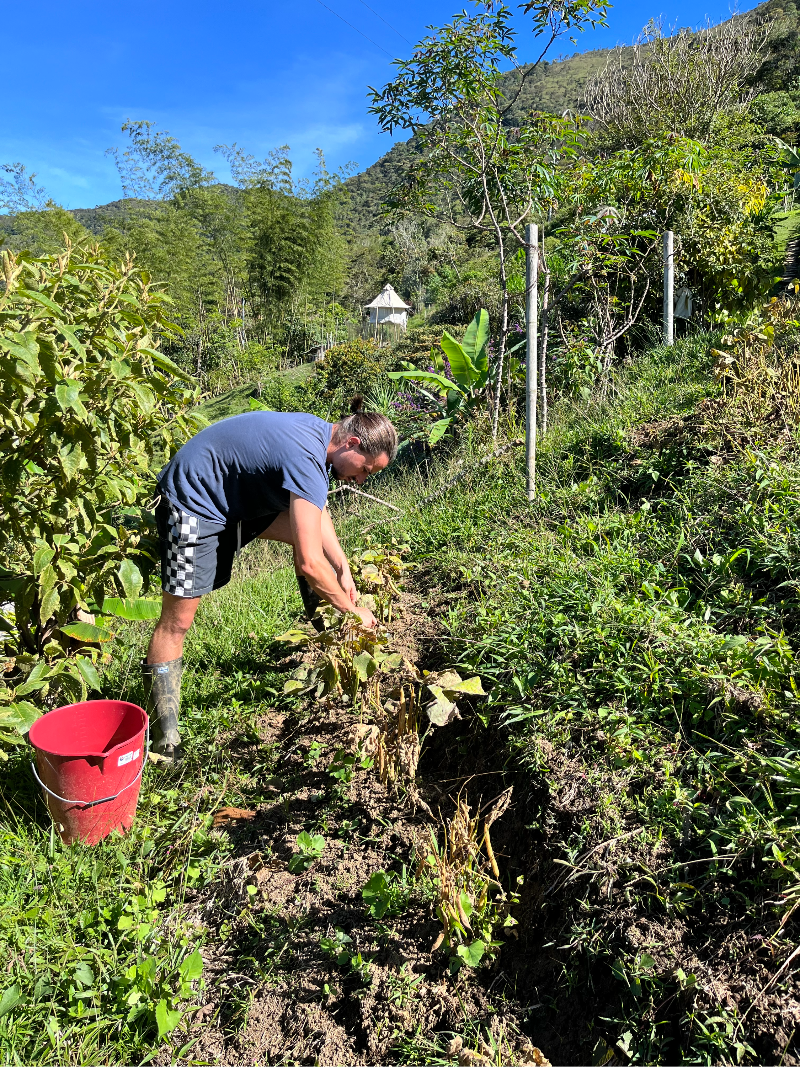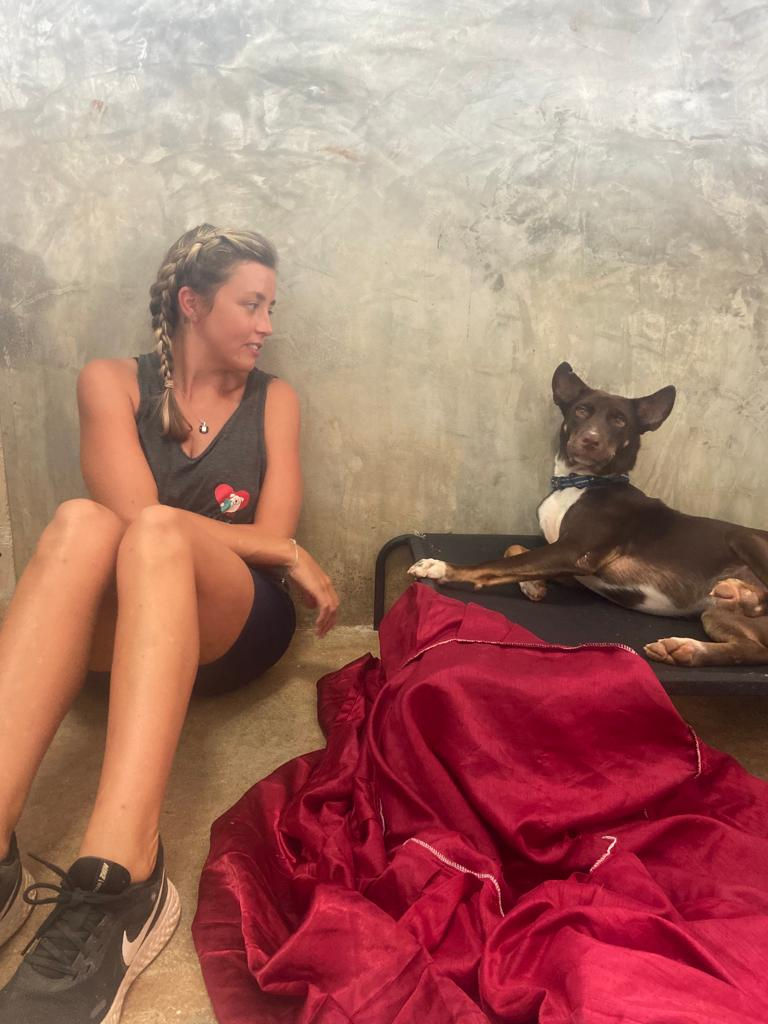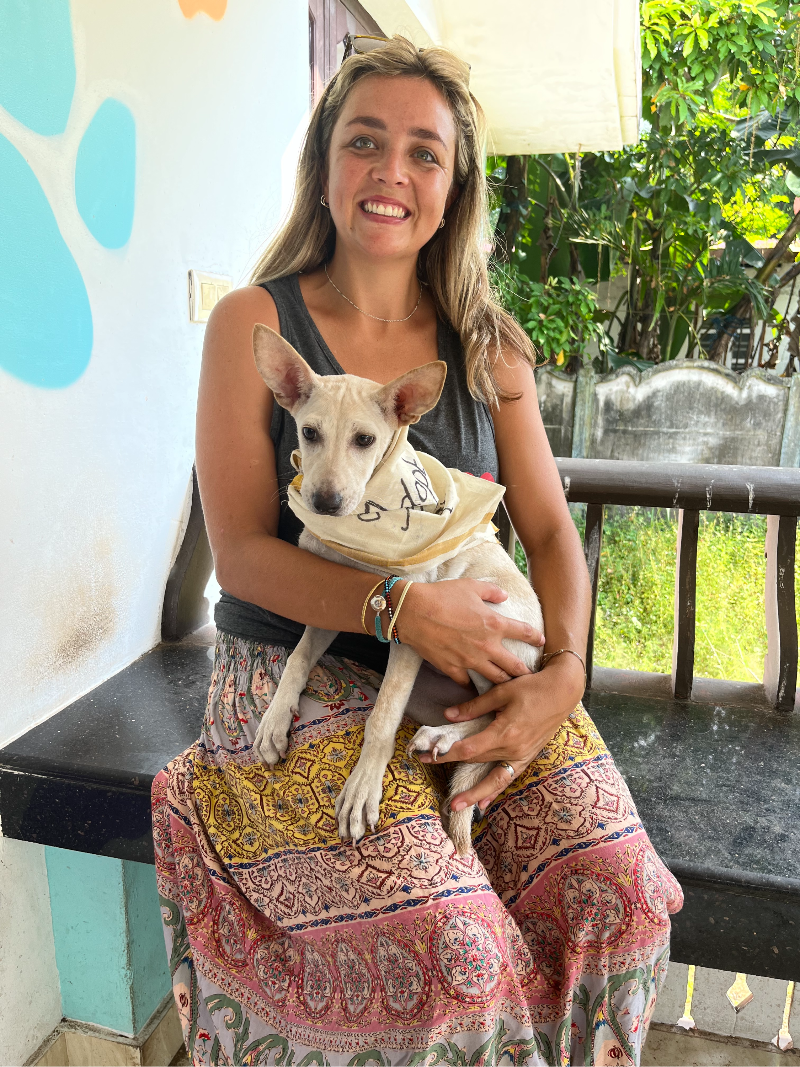How to Travel for Longer (if you're not rich!)
- IDreamofMangoes

- Mar 28, 2024
- 8 min read
Updated: Mar 11, 2025
*I think it's important to say that I am aware that being able to travel is a huge privilege, and just the fact that I have a strong passport and that I am able to earn money to afford the cost of international flights means that I am rich, compared to 98% of the rest of the world. This blog post is aimed at people in a similar position to me, who may have seen that I travel a lot and are wondering how I do it.*
This is a guide on how to travel for longer, from someone who has managed to self-fund backpacking trips around the world for the last ten years. For many people including myself, once you start travelling, you get the 'itch'. As soon as one trip ends, you begin dreaming of new places to see, and the list of far-flung destinations gets longer and longer. It feels like an endless curiosity for the world, unravelling as your interests evolve over time.
This is what we call the travel bug! For me, my mind often wanders to somewhere tropical, where mango trees grow, hence the name of this blog.
And if like me, you do not have a big pot of cash to fund these journeys to parts unknown, or you do not have a job where you can work remotely, it may seem impossible to be able to travel for extended amounts of time.
But fear not, it can be done!
In my 10 years of wanderlust, I have been able to extend my travel in 3 ways.
So how do I travel for longer?

HOW TO TRAVEL FOR LONGER
This post may contain affiliate links, which means I may get a commission if you make a purchase through this website, at no cost to you. I only link to products I use and love.
1. Return to your home country and work
Perhaps the least appealing option, and not the answer you were looking for when wondering how to travel for longer.
The culture shock of returning home after a long backpacking trip can hit quite hard, as it sometimes feels like you've changed so much, and you don't quite fit in with your old life.
However, if you need to save money, this can be a valid option. I returned to the UK after three years abroad in 2016, for eight months in total, to work in a sales office (gross) to save for my next trip. I returned again in 2019, this time for three years (covid) before setting off again in 2022.
If you have skills in the hospitality industry, it is quite easy to pick up jobs this way, even if your resume is less 'reliable'.

2. Working Holiday Visa Scheme
The second strategy for how to travel for longer is by taking advantage of the Working Holiday Visa scheme; available in Canada, Australia, New Zealand, Japan, South Korea, Taiwan, and Monaco. This allows UK citizens aged 18-30 (or 31 and 35 in some cases) to work for between 1-3 years depending on the chosen country.
This is an excellent way to prolong your travel, as you can earn great wages in the majority of these countries, they are all beautiful and full of adventure, and you are still technically ‘on the road’. I have spent two years in both Australia and NZ doing just this.
Again, having hospitality experience or some other transferrable skill is a huge plus here, as it's normally very easy to find restaurant work and it's a great way to find friends.
In both Australia and New Zealand, I found somewhere to live and a full-time job less than two weeks after my arrival in the country. It’s very straightforward to get a tax number and set up a bank account and so on, you’ll just need to consider the cost of paying a rental deposit, which is normally one month’s rent.

3. Volunteer Abroad
Long gone are the days when you have to pay to volunteer. Believe it or not, that has been a huge obstacle for me in the past. That was until I discovered Workaway.
I am still surprised when I meet people who haven’t heard of this amazing volunteering platform.
IMO using Workaway is the best way to travel for longer. It offers a lot more flexibility; in duration, location, and most importantly age bracket (for those on the other side of 30!) It also offers the chance to try different things, enjoy meaningful cultural exchanges, and make friends all over the world.
Not sure what to pack for your trip around the world? Check out the I Dream of Mangoes article:
So what is Workaway?
Workaway is a website that lets you connect with hosts and travellers around the world, give back to local communities, and get free accommodation and food in exchange for a few hours of your help!
This could be any type of volunteer work, from teaching English to school children in Indonesia, dog sitting in California, helping on a coffee plantation in Colombia or supporting refugees at a hostel in Berlin.

How does Workaway help you travel for longer?
The 'deal' is that you offer no more than 5 hours per day of work, 5 days per week.
In exchange, you are provided accommodation and meals. If the host is from a charity or a developing country they are allowed to ask you to pay for your own food, which is fair enough.
In many cases, hosts are looking for skilled volunteers, e.g. carpenters or horse-riding teachers, but a lot of the time they are also just looking for an extra pair of hands or sometimes just a chance to meet new people.
There are alternative platforms that offer a similar deal, like HelpX, Worldpacker, and WOOFING. Each provider requires a yearly subscription to connect with hosts, so rather than purchasing every available option I narrowed it down to Workaway, because it seemed to have the most choice, the best feedback, and it is super user-friendly for tech-plebs like me.

How do I start using Workaway?
Joe and I paid £47 for a couple's Workaway account for one year - and then we spent half an hour creating a profile about ourselves, narrowed down our interests (kids-no, animals-yes please e.t.c.) and away we were!
Many countries have 500+ hosts to choose from, meaning it can take a little while to browse through and find a match. We normally contact hosts we find interesting about 1-2 months before our proposed arrival unless they specify otherwise.
I would suggest that you take time to write messages individually to each prospective host, with a little bit about yourself and why you think you would be a good match. It doesn't have to be a resume, but a lazy "Hi, can I join you?" isn't going to cut it.
I would say that it's worth contacting up to five hosts at once, as in all honestly not everyone replies. Even if they do reply, and it then doesn't feel like the right fit for you, make sure to always message back! It isn't nice to leave people hanging.

How Workaway is going for us...
So far it has been an amazing experience. Here are some of the placements we have had so far:
Joe spent 3 weeks on a Cacao farm in Mangalore in India - where he painted murals on the farmhouse and washed the pet cow.
I spent 5 weeks at Lanta Animal Welfare in Thailand walking dogs - where I had the most wholesome time and feel like I became part of the family.
Joe spent 5 weeks helping out at a Thai cooking School, teaching a cocktail-making masterclass.
We both spent 6 weeks helping a young family who ran a bakery in Zambales in the Phillippines, with household jobs like decluttering, painting and baking and in our spare time we enjoyed the surfers' paradise of San Felipe.
We spent 2 months cooking for yoga retreats in a beautiful mountain community in rural Colombia.
We taught Art and Maths classes to kids at a community centre called Soweto Youth Initiative in the slums of Nairobi for 2 weeks this year (this was my favourite Workaway)
As you can see the offering is varied, interesting, and worthwhile. This is why volunteering with Workaway is my favourite option to help me travel for longer. We have since returned to both Koh Lanta and the Philippines hosts for a second round of volunteering, and have made friends for life.

More reasons why Workaway is a great choice for how to travel for longer
The set-up of Workaway is really straightforward to use on a desktop or with the app.
They have more than 50,000 hosts in over 170 countries, and they seem to be very sharp about weeding out hosts who may try to abuse the system (no slave labour here folks).
Workaway enables you to link up with travel buddies, to encourage more connections between like-minded travellers.
They offer 24-hour support for hosts and volunteers.
*Most importantly they are facilitating travel for people who genuinely want to see the world whilst contributing and giving back to the places they visit*
Connecting to a host
Once you've chosen a host description that you like the sound of, you can quickly get a sense of a place from the many reviews by previous Workawayers. If it all looks good, you can send a message explaining what you can offer the project, and when you would like to go.
If they respond, and things line up, it’s normal practice to set up a video chat with your host to get to know each other a little better and organise the finer details of your stay with them.

The Takeaway
With Workaway, not only do you connect with people you may never normally have crossed paths with, but you join and help communities! Hopefully leaving them a little better off than when you found them. Which is what all ethical travellers hope to do.
The byproduct is that you save the huge expense of food and accommodation.
Many places ask for a minimum of a month's commitment, especially if it’s a role that takes a little training...
...And this is precisely how you travel for longer (if you're not rich!)
...So what's stopping you?

Thank you for reading my article on how to travel for longer.
If you enjoyed the read, please consider subscribing to my blog where I post articles once every 1-2 weeks about my current trip around the world.
For those interested, check out my post on what goes into planning a trip around the world!
Happy Travels!
































Comments